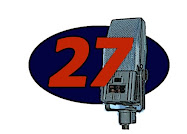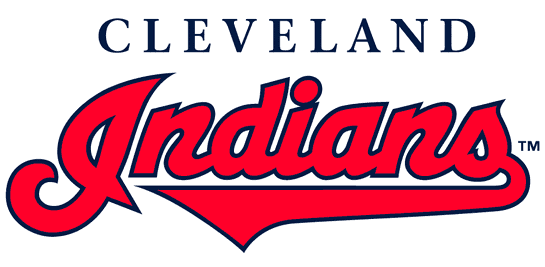Choo-sing A Plan
 By now you know that the scary specter of an arbitration hearing is gone (I know...you were gripping about it) and Jerry Browne remains relevant on the North Coast for one more year (at least) as the Indians closed out their potential arbitration cases to start the week and to essentially set the payroll for 2011.
By now you know that the scary specter of an arbitration hearing is gone (I know...you were gripping about it) and Jerry Browne remains relevant on the North Coast for one more year (at least) as the Indians closed out their potential arbitration cases to start the week and to essentially set the payroll for 2011.
While the 2011 payroll is a topic for another day (how does Sunday sound?), the Indians cleared their arbitration decks as Cabrera re-upped for $2.025M on Monday (delved into deeper in a piece over at TCF’s “Hitting the Fan”) and on the next day, the Indians completely closed their arbitration cases out as Rafael Perez signed a deal worth $1.33M in his second year of arbitration eligibility and Chris F. Perez agreed to terms on a $2.225M deal in his first year of arbitration eligibility.
While his case was largely ignored, it is important to note that Chris Perez was designated as a Super-2 this year, meaning that he is under club control for 4 more full seasons meaning that he’s not eligible to be a FA until after the 2014 season, unlike the other 1st year arbitration eligibles Cabrera and Choo, who are (at present) under club control through the 2013 season.
As for why Pure Rage’s case was overlooked, now that Choo’s name has been invoked, let’s take one last swipe at that dead horse over there and examine not just what happened, but more importantly, what is still on the horizon for Choo and the Tribe.
Starting off, realize that this process played out just like it was supposed to (at least if you’ve been keeping up) as the Indians inked Choo to a one-year deal worth $3.925M that buys out his first year of arbitration eligibility. While the Indians and Boras/Choo will give some lip service to a long-term deal that would buy up some of Choo’s FA years, short of the Indians doling out a deal on par with the Carlos Gonzalez deal meted out by the Rockies (7-years, $80M...and the Indians shouldn’t given that CarGo is 25 years old and Choo is 28 years old), it looks like the Indians are likely to go year to year with Boras/Choo in his remaining two arbitration years.
That being said, the Indians could approach next year’s negotiations a little differently and attempt to get some cost certainty for his final two years of arbitration eligibility as (if you’ll remember) the 3rd year of arbitration allows comparisons to players on the open market, something easily seen by Prince Fielder signing a $15.5M deal for his 3rd year of eligibility, brokered by Fielder’s agent...wait for it...Mr. Scott Boras, Esquire.
What do I mean by that, in the “cost certainty”?
Well, the 3rd year of arbitration is where agents are able to compare players and salaries to those on the open market (prior to that, they can only compare them to players with similar service time) and that 3rd year of arbitration number could be a big one. While that may be a concern for another day, if the Indians are smart about this, they would wait to see how 2011 goes for Choo and enter next year’s negotiations attempting to solidify the numbers for not only 2012, but also 2013, even if it means not buying out any FA years because of the way that 2013 number figures to ramp up significantly.
If you’re looking for a precedent on this rationale (and an awfully good one), consider the case of Dodgers’ Andre Ethier and how it relates to Choo. While it was reported that the Dodgers’ Matt Kemp was used as a comparable to determine Choo’s 2011 salary, a better approach to examine (in terms of prudence) is the one that the Dodgers took with Ethier last year as perhaps it presents a blueprint for the Tribe for next season’s negotiations, whether or not they could get Scott Boras to go along with it.  For some perspective on this, Ethier was eligible for arbitration for the first time prior to the 2009 season, so all of the totals and numbers and comparison to Choo have to do with service time accumulated and not calendar seasons. Since the plate appearance difference leads to a disparity in 2B, 3B, etc. that doesn’t accurately reflect the similarities, I’m using the 162-game average for both players with the idea that they’re at the same point in service time, if not plate appearances:
For some perspective on this, Ethier was eligible for arbitration for the first time prior to the 2009 season, so all of the totals and numbers and comparison to Choo have to do with service time accumulated and not calendar seasons. Since the plate appearance difference leads to a disparity in 2B, 3B, etc. that doesn’t accurately reflect the similarities, I’m using the 162-game average for both players with the idea that they’re at the same point in service time, if not plate appearances:
Ethier’s career line entering 1st year of Arbitration (1,542 PA)
.299 BA / .364 OBP / .482 SLG / .846 OPS (118 OPS+)
162-game average - 35 2B, 6 3B, 17 HR and 76 RBI
Choo’s career line entering 1st year of Arbitration (1,921 PA)
.297 BA / .391 OBP / .488 SLG / .880 OPS (138 OPS+)
162-game average – 38 2B, 5 3B, 21 HR and 95 RBI
As we all know, Choo will be paid $3.925M in 2011, while Ethier’s salary after posting that line was $3.1M for the 2009 season. Sure, Choo has the better overall stats among those two lines and will be paid more in his first year of arbitration eligibility (because…you know, this is how arbitration years work), but this is where it gets interesting and relevant to the Choo situation going forward.
In 2009, with Ethier heading towards his second season of arbitration eligibility in the off-season, he posted this line with the Dodgers:
.272 BA / .361 OBP / .508 SLG / .869 OPS (131 OPS+) with 42 2B, 3 3B, 31 HR, and 106 RBI
Boom...right?
If the Indians can get that out of Choo in 2011, it would more than a bit of a rousing success, as it would represent a career high in 2B, HR, and RBI. Best case scenario for Choo and Boras, no?
But that means it would also catapult Choo’s salary into the stratosphere after this season, right?
Not necessarily...as after THAT 2009 season, Ethier avoided arbitration by signing a 2-year deal worth $15.25M that paid him $5.75M in 2010 (his 2nd arbitration year) and will pay him $9.25M in 2011 (his third arbitration year), his last season before Free Agency in what was a great move by the Dodgers. Reason being that, if you remember the way that arbitration works, in that the 3rd year of eligibility allows comparison to any player (and not just ones with comparable service time), which causes that 3rd year arbitration salary to jump.
The Dodgers, with Ethier coming off of a career year were able to avoid arbitration for his final TWO years (at awfully reasonable salaries, given the production) and prevent Ethier from entering the arbitration process for that 3rd year, when the money gets higher (ahem...Fielder) by anticipating what it would take to lock Ethier down for two years.
While you might be saying, “wait, I thought you just said that the Reds locking up Votto for his arbitration-eligible years without getting FA years was too risky...but what the Dodgers did isn’t?”
Well...yes, if only because Ethier was one year closer to FA, which takes the risk assumed by the team down a full 1/3.
Of course, these kind of negotiations are still a full year away (with an actual baseball season scheduled to take place in the meantime), but if you’re looking for a blueprint of how the Indians could approach Choo going forward, that’s probably a best-case scenario as Boras is not going to give up just one (or two) FA years and, frankly, it’s questionable as to whether he’d even be amenable to a deal like the one Ethier inked last Winter. If Ethier signed a deal that paid him $5.75M and $9.25M in his final two years, would Choo and Boras go for something similar next year, with small increases to both years (let’s say $6M and $10M) to avoid what just happened with Fielder and Milwaukee?
At this point, it’s folly to guess, and after all of the hand-wringing, nothing has really changed with the Choo situation as he remains under club control through the 2013 season (as much as parts of the “doom-and-gloom” media wants to manufacture this into something it is not, with Exhibit A being this absolutely atrocious Ingraham piece that you should read at your own risk as it defies both logic and...you know, facts), and the long-term deal that looked unlikely looks just as unlikely. Instead, it certainly looks like the Indians will pay Choo through his arbitration years at a rate commensurate with his production and service time…which is where we started this whole thing.
For Choo, it’s now on him to keep producing to receive bigger and bigger paydays leading up to his FA off-season after the 2013 season.
For the Indians, while the idea that Choo will sign away his FA years for upfront money has virtually disappeared (although it was gone from the time The BLC changed agents and hired Boras), they will now pay Choo for his performance on the field from year to year, with very little risk assumed if a regression or injury occurs, perhaps with a new strategy in their pocket for next off-season.










1 comment:
Post a Comment